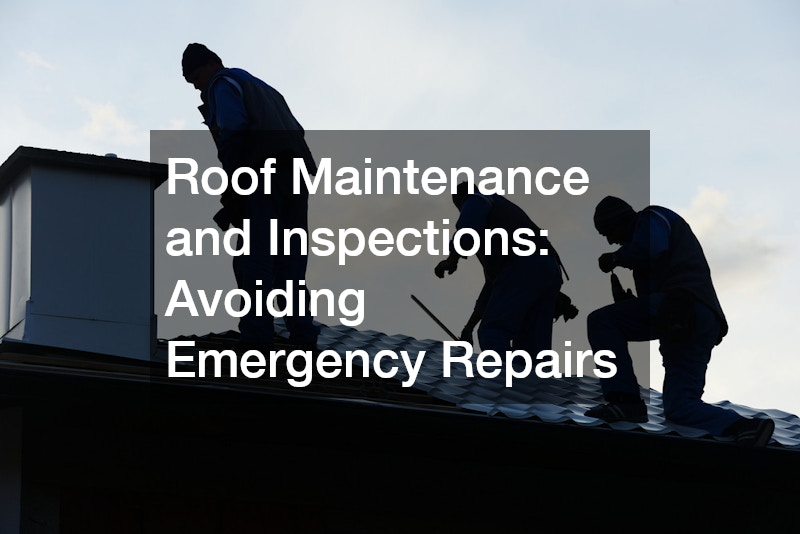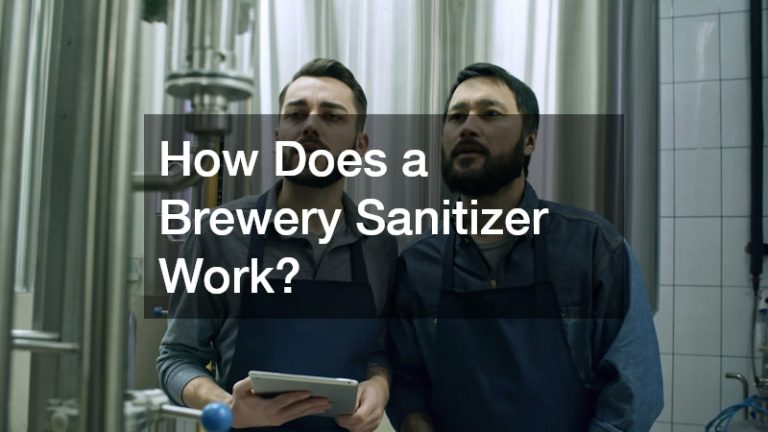
Commercial maintenance is often overlooked when managing a business. Effective maintenance strategies save time and money over the long term while ensuring uninterrupted operations. A well-rounded maintenance schedule for commercial vehicles and facilities is essential to a sustainable business.
This article examines different aspects of commercial maintenance. We explore essential practices like regular vehicle assistance and surface inspections. We also examine equipment care and plumbing checks. You’ll learn how to integrate these services into an integrated maintenance strategy by the end of this book.
These insights are intended to help businesses improve their maintenance practices. For a robust maintenance program, it is important to align with professionals such as concrete contractors, plumbing services, or towing companies. These elements can be incorporated into your maintenance plan to avoid potential disruptions and extend the life of your equipment and facilities.
1. Planning Regular Fleet Maintenance to Minimise Downtime
Commercial maintenance is dependent on efficient fleet management, which prevents disruptions in operations that may affect service delivery. Regular vehicle assistance helps fleet operations to run smoothly, reducing downtime. To maintain an efficient fleet, engage reliable towing companies.
By performing regular maintenance and inspections on your vehicle, you can identify problems before they become costly or cause lengthy downtimes. Businesses can increase the life of their fleet by monitoring tyre performance, engine performance and brake systems. Partnering with a forklift provider can make it easier to maintain specialised vehicles and equipment.
A documented maintenance plan will allow for planned interventions that are crucial in preventing unexpected breakdowns. Implementing IoT can also streamline vehicle diagnostics, alerting maintenance teams to potential problems. This approach improves not only vehicle reliability but also daily operations.
2. Conducting Surface Inspections to Avoid Expensive Repairs
Commercial maintenance is not complete without surface inspections. They can help prevent costly repairs in the future. Neglected surface irregularities can become major issues, which will incur expensive repairs. By engaging local paving contractors to conduct regular evaluations, you can detect signs of wear early and take proactive measures.
Routine inspections can help ensure that surfaces inside and outside remain functional and safe and reduce the liability risk associated with structural failures. Concrete surfaces should be checked for wear or cracks that can compromise the integrity of their surface. To maintain the safety and quality of your structures and pavements, it is best to hire experienced concrete contractors.
Proactive surface maintenance does not just mean repairs but also preventive resurfacing that can increase the durability and aesthetics of commercial premises. A professional evaluation plan will help you identify problems before they become a problem. It not only helps to save costs, but it also keeps the professional image of your business.
3. Establishing Equipment and Machinery Maintenance Routines

Establishing a routine that is reliable for the maintenance of equipment and machinery is essential to effective commercial maintenance. Machines need to be serviced regularly, just as workers do. Working with a forklift service provider can offer specialised maintenance solutions to equipment that is critical to the business.
Regular inspections can detect wear and tear, which might not be apparent during normal operations. Failures of machines can cause significant financial and operational losses. By integrating machinery checks into the maintenance calendar, such risks can be managed effectively.
Businesses can benefit from the expertise of reliable partners in equipment maintenance and avoid expensive downtimes. Training staff in handling machinery and spotting early signs of defects increases the effectiveness of routine maintenance. This proactive approach protects the integrity of your business and promotes long-term success.
4. Prioritising Plumbing and Drainage Inspections
The plumbing system is a vital part of any building’s infrastructure. It has a profound impact on the daily operations. Plumbing services that are qualified can conduct regular inspections to identify problems early and avoid major disruptions. Proactive plumbing management can support business continuity by keeping facilities hygienic.
Plumbing checks should be incorporated into a broader maintenance plan for commercial buildings. This includes assessing local sewer lines, pipes and drains. Plumbing is often the only thing that businesses focus on when problems occur, but regular inspections can uncover hidden issues before they become visible. Consistency in these evaluations helps to maximise
operational efficiency and reduce repair costs.
Working with a commercial plumbing professional can help ensure that specialised knowledge will be applied to the maintenance of your facility’s system. Communication with service providers is essential to prevent any disruptions. It is not only cost-effective, but it also creates a safe and efficient working environment.
5. Planning for Timely Underground Systems Checks to Avoid Expensive
Issues
Underground utilities are often overlooked by commercial maintenance plans due to their hidden nature. Their neglect can cause major disruptions and costly repairs over time. Professionals who are experienced in sewer line repair can perform scheduled checks to prevent disasters.
Businesses can save money by identifying problems early. These inspections should be performed on a regular basis to maintain underground systems. Professionals who are knowledgeable in local sewer line repair ensure the integrity of infrastructure.
Businesses can also gain a competitive advantage by coordinating with professionals to check and maintain underground systems. This aligns with sustainable practices and reduces the environmental footprint through preventing sewer spills. The reputation of a company as a trustworthy entity that is committed to sustainability and operational excellence can be enhanced by this responsible maintenance approach.
6. Regular Hardscape and Pavement Maintenance
The exterior appearance of your business can have a profound impact on first impressions, and even influence the decision of clients to use your services. Regular maintenance of hardscapes and pavements is essential to maintaining a safe and inviting business environment. Local paving contractors are able to provide surface integrity that enhances both aesthetic appeal as well as functional reliability.
Cracks, potholes and surface irregularities can not only harm a company’s professional image, but they also pose a safety risk to clients and employees. These issues should be addressed quickly by regular commercial maintenance programs. Concrete contractors who are experienced in proactive maintenance of pavements can prevent costly accidents and liability.
Local paving contractors must maintain surfaces to ensure they are resistant to weather and wear. This method extends the life expectancy of your assets, ensures customer satisfaction, and preserves the brand’s reputation. Regular pavement maintenance demonstrates a company’s commitment to safety and efficiency.
7. Protecting Your Business from Pests and Property Damage
Pest infestations can cause property damage and pose significant operational challenges, impacting productivity and customer impressions. As part of a commercial maintenance strategy, it is important to establish a regular partnership with a pest management company. Integrating integrated pest management ensures that facilities are kept clean and safe.
A trusted pest control service can perform routine inspections to identify weaknesses and help prevent infestations from becoming a problem. Pest-related problems can be addressed quickly to protect inventory and staff health. It reduces liability and reinforces the commitment of a company to provide a safe workplace.
A pest control company should visit regularly to ensure a holistic approach. When these efforts are combined with regular cleaning regimens, a comprehensive approach is taken to protect business environments against pests. Pest control is essential to maintain a clean, functional facility.
8. Roof Maintenance and Inspections: Avoiding Emergency Repairs

Roofs are an important part of the infrastructure in any building, protecting assets and operations against the elements. Regular roof inspections, as part of routine commercial maintenance, ensure that problems such as leaks can be detected and fixed quickly. Using roofing experts can prevent costly emergencies.
Roofing services can perform a thorough roof inspection to identify any vulnerabilities, such as structural flaws or inadequate insulation. Scheduled maintenance helps businesses plan their repairs and avoid sudden financial burdens. This method also increases the lifespan of roofing materials and the structural integrity of the building.
By establishing partnerships with reliable roofers, you can ensure that your maintenance and monitoring schedules are aligned with the environmental conditions. This proactive approach prevents unplanned failures and promotes continuous business operations. This demonstrates a commitment to maintain high standards of property, which are integral to a company’s image.
9. Regular Cleaning and Waste Removal Routines Can Help Your Business Grow
For a successful business, it is important to maintain a regular schedule for cleaning and waste removal. By using reliable trash services, you can ensure that your waste is disposed of efficiently and reduce clutter. This is a key component of any commercial maintenance program.
Regular trash collection helps maintain cleanliness and creates a hygienic and welcoming environment for employees and customers. Waste management is crucial to preventing pest infestations, and maintaining health standards. This proactive approach improves both the image of a business and its operational efficiency.
Integrating cleanliness protocols, such as daily cleaning and periodic deep cleaning, is essential. It is important to maintain high sanitation standards through a systematic approach. This consistency is essential for sustainable business success as well as client satisfaction.
10. Preventive Plumbing Checks Can Help Your Business Avoid Disruptions
Ignoring minor problems can cause major disruptions to a facility. A commercial maintenance program that is effective must include preventive plumbing checks. By partnering with professional plumbers, you can ensure that any potential problems are dealt with proactively.
Routine plumbing inspections can help identify corrosion, leaks, and blockages before they become larger problems. It is possible to schedule local sewer line repairs quickly, which minimises potential disruptions. Consistent inspections not only prolong the lifespan of infrastructure but can also result in substantial savings over time.
Hire a commercial plumbing professional who is familiar with the specific requirements of businesses to improve the performance and reliability of your plumbing system. They can take corrective measures before minor problems become emergencies. Regular preventive actions strengthen a company’s resilience to unexpected shutdowns and ensure operational continuity.
11. Integrating Equipment Servicing and Machinery Maintenance into Your Operations Schedule
Integrating equipment maintenance and servicing into the schedule of operations is crucial to maintaining high productivity. Commercial maintenance includes establishing a routine to inspect and service all critical equipment. Working with experts such as forklift companies ensures the machinery is in top condition.
Routine inspections ensure that the equipment is performing at its best and that any minor problems are quickly resolved. Early detection can reduce operational downtime and associated costs. Maintaining a well-maintained fleet of machinery is essential to maintaining production standards and meeting customer expectations.
Integrating regular maintenance into your schedule can ensure consistency of quality and performance. Engaging professionals to perform preventive maintenance also helps foster a culture that values reliability and accountability. This structured approach aligns business processes with strategic, operational goals.
12. Adjusting Your Facility Maintenance Plans to Align With Seasonal Needs
Commercial maintenance plans must be adapted to seasonal changes. The seasons can present different challenges. For example, summer pest control may be more intensive, while winter roof maintenance is necessary. By adapting your schedule to meet these needs, you can ensure that services are uninterrupted.
Seasonal adjustments can help optimise resource allocation, prevent strain on maintenance personnel, and avoid emergency expenditures. Winter preparations might include roof inspections and ensuring that adequate heating is available. Strategic planning allows for efficient resource usage and increases the facility’s ability to withstand seasonal challenges.
Use seasonal experts to strengthen your building’s defence, such as roofing services during the colder months or pest control companies in the warmer months. These partnerships will help you fine-tune your maintenance plan so that it can best adapt to changing environmental conditions. This proactive, flexible approach improves operational reliability and business continuity.
13. Creating a Single Maintenance Schedule That Incorporates All Critical Services
A commercial maintenance plan that includes all services is essential to a well-managed facility. Consolidating services like plumbing, pest control, and machinery maintenance can allow for coordinated efforts. This comprehensive approach maximises resources and simplifies task management.
Unified schedules are more efficient and provide greater clarity. They also reduce the risk of being overlooked. It allows facility managers to monitor maintenance and adhere to regulations and standards. All services can be streamlined to a single framework. This reduces conflicts and redundant work.
A holistic maintenance strategy demonstrates a commitment to maintaining high operating standards and promotes mutual growth over the long term. This coordinated approach promotes communication with third-party providers and internal teams, ensuring a smooth, efficient environment.
The Bottom Line
A comprehensive maintenance plan for commercial buildings protects businesses against various interruptions. Addressing all elements, from vehicle assistance to surface inspections and waste management to plumbing maintenance, effectively mitigates risks. This multifaceted approach is the foundation of a sustainable business and promotes long-term success.
By working with specialists, such as towing services and plumbing companies, you can ensure that every aspect of maintenance will be handled by professionals. Plans that include underground challenges and seasonal issues will further strengthen your facility’s defences against future problems. It is important to be proactive in addressing maintenance needs. This will improve reliability and customer satisfaction.
Businesses that invest in a solid commercial maintenance strategy can enjoy immediate gains in operational efficiency but will also see long-term growth. Businesses can ensure the functionality and well-being of their assets by aligning themselves with local roofing and paving services. This methodical and deliberate approach is the cornerstone of a thriving, long-lasting commercial operation.



